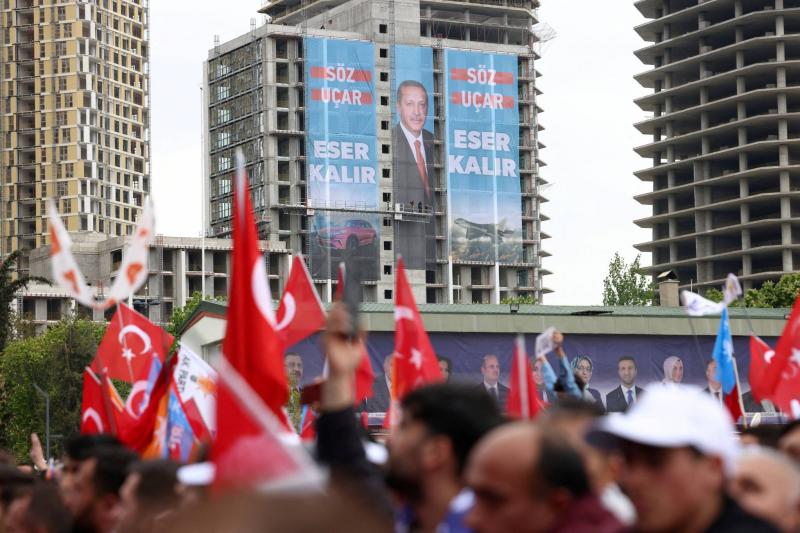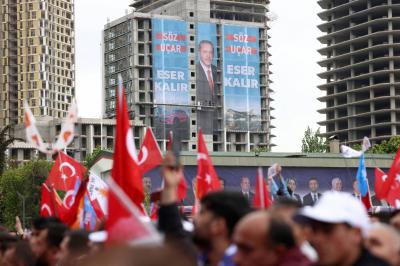Turkey appears to be heading towards a runoff in the presidential election after President Recep Tayyip Erdoğan outpaced his opposition rival Kemal Kılıçdaroğlu in the elections held yesterday, Sunday. However, he failed to secure the necessary majority to declare victory in the first round and extend his 20-year rule. Neither Erdoğan nor his rival received the 50 percent of votes required to avoid a runoff on May 28, a pivotal election viewed as a test of Erdoğan's increasingly authoritarian rule.
The presidential election will not only determine who will lead Turkey, a NATO member with a population of 85 million, but will also define whether the country will pursue a more secular and democratic path and how it will address a severe cost-of-living crisis, as well as manage its important relations with Russia, the Middle East, and the West. Kılıçdaroğlu, who stated that he would defeat Erdoğan if a runoff were to occur, urged his supporters to be patient and accused Erdoğan's party of interfering in the vote counting and announcing results.
However, Erdoğan achieved better-than-expected results in pre-election polls and appeared confident in a speech delivered to his jubilant supporters who waved flags. He said, "We are already ahead of our closest competitor by up to 2.6 million votes. We expect this number to increase as the official results are announced." The state-run Anadolu Agency reported that with about 97 percent of the votes counted, Erdoğan was leading with 49.39 percent of the votes, while Kılıçdaroğlu garnered 44.92 percent. The High Election Board announced that Erdoğan received 49.49 percent after counting 91.93 percent of the votes.
Thousands of Erdoğan's supporters gathered outside the ruling Justice and Development Party headquarters, chanting party songs using loudspeakers and waving flags, while some danced in the street. Yalçın Yıldırım, a 39-year-old textile factory owner, stated, "We know that this is not a celebration in the true sense of the word, but we hope to soon celebrate his victory. Erdoğan is the best leader for this country, and we love him."
The results reflect a deep division in a country at a political crossroads. Erdoğan's ruling coalition is expected to secure a majority in parliament, potentially giving him an advantage before the runoff. Pre-election polls anticipated a closely contested race, with Kılıçdaroğlu, who leads a coalition of six parties, having a slight edge. Two polls released on Friday projected Kılıçdaroğlu would secure more than 50 percent of the votes.
Hakan Akbaş, managing director of a strategic consulting firm, remarked, "The next two weeks may be the longest two weeks in Turkey's history, and a lot will happen. I expect a clear collapse of the Istanbul stock exchange and considerable currency volatility." He added, "Erdoğan has an advantage in the second round after his coalition's significant lead over the opposition coalition."
A third nationalist candidate in the presidential election, Sinan Oğan, received 5.3 percent of the votes. Analysts noted that he could play the role of "kingmaker" in the runoff depending on which candidate he decides to support. The opposition contended that Erdoğan's party was obstructing the announcement of complete results by filing objections, while authorities were reportedly releasing results in a manner that artificially inflates Erdoğan's tally.




